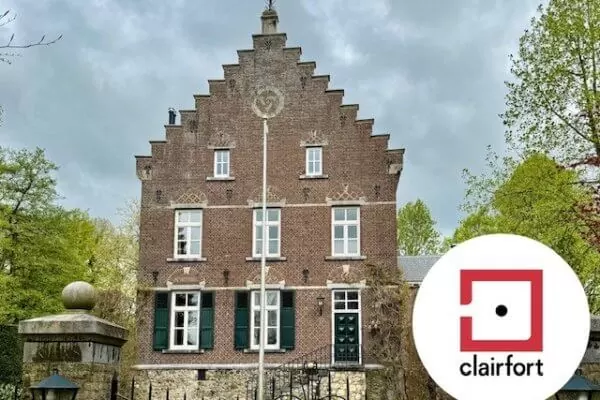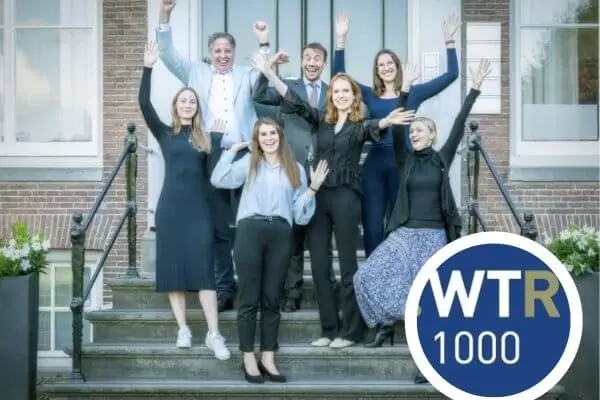A public-private partnership (PPP) is actually a catch-all term which can be used in relation to any form of collaboration between a public and private party which addresses a need defined by the public party. What is typical of a public-private partnership is a description of its objectives and demand specifications on the part of the public party, on which the market party bases its solution.
Straightforward PPS
The more closely a market party is involved in formulating the objectives, the closer the collaboration and one may ultimately refer to a “straightforward” PPP. The legal basis for a PPP already starts with an integrated type of contract, such as UAV-GC 2005 and may extend to a comprehensive area development project, pursuant to which the parties commercially exploit an area that is to be developed (a joint “GREX”).
Clairfort has extensive experience in providing advice about and structuring PPP projects. Our involvement begins with conceiving a market approach as well as a contracting strategy, drafting contract documents, and arranging and overseeing any tendering process.
PPS
Should you have any questions concerning this expertise, please contact:
Marius Strijker
strijker@clairfort.nl
Contact details Property & Construction
030 – 307 54 65
vastgoed@clairfort.nl
Attorneys-at-law and lawyers Property & Construction
René Mussaeus
Marius Strijker
David de Jong
Maaike Berends – de Weerd
Marcel Maeder-Maes
Register for our newsletter
Bouw & Vastgoed: Sectoren
Because of an increase in activity, traffic over land and water will increase further, which will make growing demands on our infrastructure. What is typical of projects designed to optimise that infrastructure is complexity, not only from a technical perspective but also because of the extensive impact on its surroundings. It is for this reason that such types of projects need to be increasingly approached as an area development challenge rather than merely the construction of an infrastructure network.
Increasingly more complex
The applicable legislation and regulations are becoming increasingly more complex and to a large extent determine the actions of initiators. With Clairfort’s expertise and experience, our sensible work mentality and solution-oriented approach, we can make a valuable contribution to the execution of infrastructure projects.
Legal aspects always play a major role in the development and execution of property projects, such as residential construction projects, office blocks, commercial premises and shopping centres, whether or not they involve new developments, renovations, redevelopment or urban renewal. The legislation and regulations governing project development are in a state of flux and are constantly growing more complex. For this reason Clairfort prefers to adopt a multidisciplinary approach to project development. Because of this we are in a position to guide our clients – project developers, contractors, investors, public authorities (municipal and otherwise) and housing corporations – through a project properly and efficiently.
From advice to litigation
We can provide support for the purposes of negotiations, identifying risks, opting for the most efficient form of collaboration and drafting contracts. In addition, we possess a thorough knowledge of spatial administrative and environmental law, indispensable where project development is involved. We provide advice and, where necessary, conduct litigation in relation to zoning plan procedures, licenses and permits, and the legislation or regulations governing flora, fauna and environment.
Procurement law is also very important in relation to project development, especially in the case of public authorities. In practice, the regulations governing tenders raise numerous questions and are leading to judicial proceedings with growing frequency.
The utility market is highly diverse, at any rate where the properties that are to be developed and the legal frameworks are concerned. Residential dwellings, offices, schools and other public purpose property, every type of property has its own dynamics and substantive legal framework.
Experienced player
Clairfort is an experienced player in the field of utility construction. Our expertise ranges from the traditional legal profession to a more pragmatically structured provision of project-based legal services. This we do from a procurement perspective which is as involved as one geared towards environmental law and/or building contracts.
It is impossible to imagine the absence of hydraulic engineering in a country such as the Netherlands. Both the maritime sector and hydraulic engineering works constitute part of this exciting field.
As part of its legal contracting and construction profile, Clairfort has experience in the preparation for and execution of hydraulic engineering projects. Amongst other things, we have directed our expertise towards the large-scale restructuring of unembanked areas, desanding projects, and waste and drinking water projects.
Property investments demand a legal knowledge of various fields of property and construction law. Whether the purchase, sale, letting or leasing of offices, residential dwellings, retail outlets or logistical property is involved, legal issues pertaining to the law governing tenancies, property (easements and the like), construction, spatial planning and contracts almost always play a role.
Advice and more
Clairfort possesses a great deal of knowledge and experience in these fields and is able to apply this expertise to property transactions in a comprehensive manner. We enjoy excellent contact with proficient, experienced property notaries, as a result of which we are not only able to provide advice concerning property transactions but can also assume responsibility for property conveyancing. We act on behalf of domestic and foreign property investors who invest in offices, residential dwellings, retail outlets and logistical property.
As society ages, the need for accommodation for the elderly and health care property is growing. The requirements which are stipulated in respect of such residential dwellings and buildings nowadays differ greatly from the quality that is usually offered. As a result there is a need for new development and the targeted redevelopment of existing buildings may provide a solution for the market demand for good quality accommodation for the elderly and modern residential health care structures.
Clairfort has a great deal of experience dealing with legal issues concerning the development and redevelopment of health care properties. This is not confined to environmental law, the law of contract (governing buildings and otherwise) and procurement law but we also (and in particular) understand issues concerning health care properties involving housing associations and health care institutions, the question as to whether a specific activity may be deemed to constitute a service of general economic interest and the letting of residential dwellings (for health care purposes and otherwise) through an “intermediary” landlord, often a health care provider. In addition, we have experience in relation to the distinction between residential accommodation and health care, income assessment and the allocation of appropriate accommodation, and also the alteration of health care positions to create more onerous nursing positions (and the legal aspects of this).
We are glad to be of service to you.
Blog

Maurice Essers to be sworn in as a lawyer in Maastricht – Clairfort opens Maastricht office

The IP protection of … Lego

Relocation: Clairfort Amsterdam seeks higher ground

Evert comments on a court case in Dutch news paper NRC. The case is about a webshop copying product information from another webshop without permission

Clairfort’s IP team ranked in World Trademark Review 1000 – The World’s Leading Trademark Professionals





